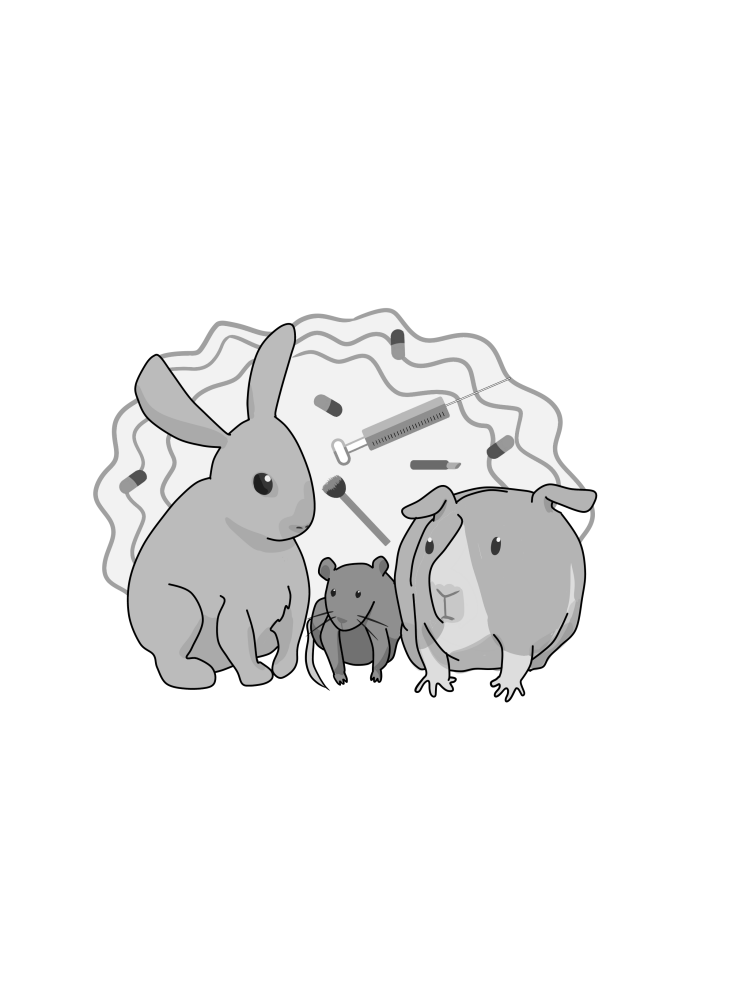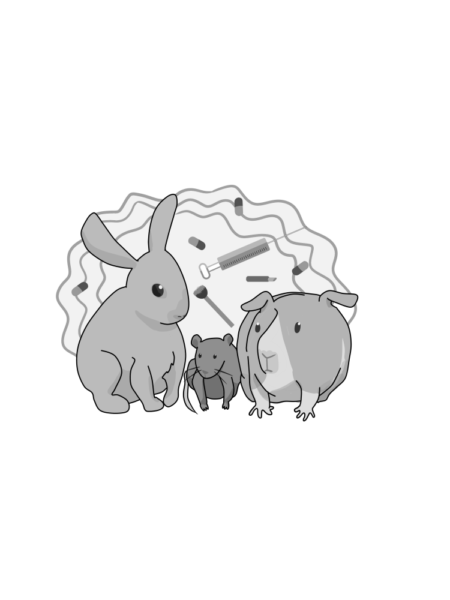
The “cruelty-free” label can be found on shampoo bottles, hairspray, lipstick and other products, indicating that the product was not tested on animals. However, animal testing is not confined to cosmetics; it is often used for scientific research such as medication development, lowering, but not eliminating, the risk of adverse effects on humans. Still, this testing method comes at the price of many animal lives.

Biology teacher Samantha Belvini explains the importance of animal testing in medical research.
“[Animal testing provides] easier access to studying things like genetics and different medical treatments because mice and [other animals] are easier to grow, and they grow fast,” Belvini said. “It’s easy to see those effects over generations as opposed to [humans].”
With this method, experimenters can observe full life cycles and apply the knowledge to how medications may affect humans.
Vice president of Aragon Paw Club, sophomore Nina Natarajan, sees both sides of the argument and understands why animal testing may be necessary.
“I understand why people find the need to [test on animals] because you don’t want to put a product out there that’s going to be harmful to somebody,” Natarajan said. “But I think it’s also … really bad because … you’re harming all these animals … [using them] for cosmetic reasons, I think that’s completely unacceptable.”
According to Humane Society International, over 115 million animals are killed each year due to animal testing, many of which are subject to inhumane conditions. Not only does animal testing harm many animals, but the process is expensive as well. Testing just one product can cost over two billion dollars, according to Harvard’s Wyss Institute. 92% of products don’t even get released, wasting money and millions of animal lives.
“I would definitely like, in the future … [to] advance and evolve our technologies [so that we] don’t have to use [animals],” Natarajan said.
“Over 115 million animals are killed each year due to animal testing”
Freshman Seth Weinfield shares similar views.
“I don’t … support it because of all the animal cruelty that comes along with it,” Weinfeld said. “There are a few very specific scenarios [for example] if there was a very major scientific discovery that would help the human race, then, of course, I would support that, but I’d much prefer… to avoid animal testing as much as possible.”
Laws have been implemented to protect animals, such as the Public Health Service Policy, which limits the number of animals used for research or product testing to be at the minimum, and for their living conditions to be “appropriate for their species and contribute to their health and comfort.” Despite this, current restrictions are not tight enough; the policy only applies to facilities using federal funding, such as the NIH, leaving other companies free to do as they wish. Another restriction is the Animal Welfare Act (AWA), which requires animals to be “provided humane care and treatment.” However, the act does not cover the most commonly used animals, such as birds, rats and mice.
As an alternative to animal testing, companies can use “Organs-On-Chips” by Harvard’s Wyss Institute, which are clear pieces of polymer with small tubes containing human cells. These polymers mimic human organ systems and their diseased states, acting as living cross-sections. Not only does this testing method save animals, but it also decreases the likelihood of unsafe drugs moving to human clinical trials. There have been multiple instances of drugs being approved in animals, but they still caused serious harm in humans, because animals are not exact copies of humans. An example is a drug called TGN1412, tested in 2006; according to NCBI, it was safe in animal testing trials but sent six human participants to the intensive care unit.
As for cosmetic testing, CeeTox has developed a method using human skin cell models to detect possible allergy issues. The models mimic traits of normal skin, and can potentially phase out applying products on animals. According to NCBI, CeeTox assays proved to be effective at testing the toxicity of drugs in a study they conducted.
“I do [consider the cruelty-free label],” Belvini said. “Certainly [for] cosmetic products … I tend to buy things that are not tested on animals. It’s also important… to research the company.”
Brands that do not use animal testing include Pantene, Dove, Urban Decay, NYX, Covergirl and many more. Though one might not feel a difference at the store, refusing to buy tested products sends a message to companies to switch to more humane testing methods, which could save millions of animals in the long run.



